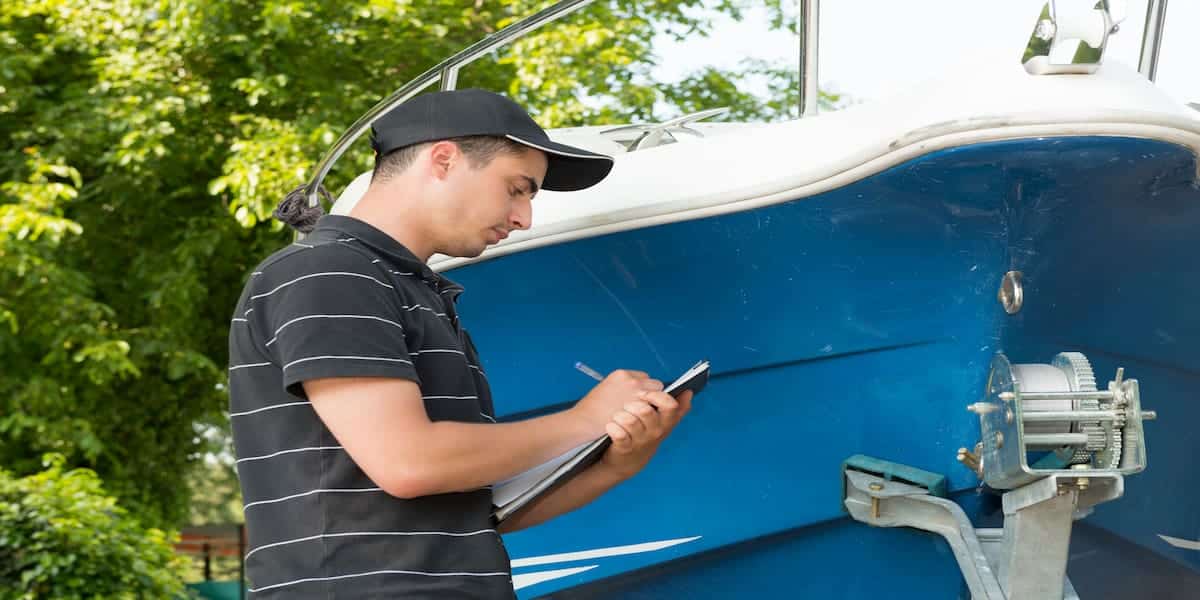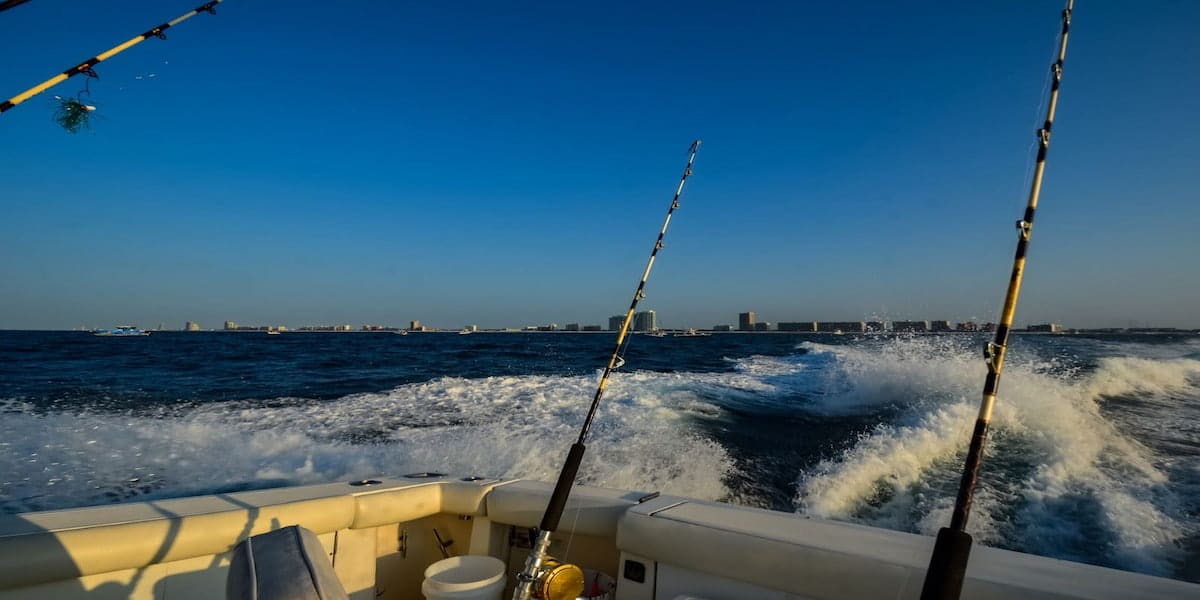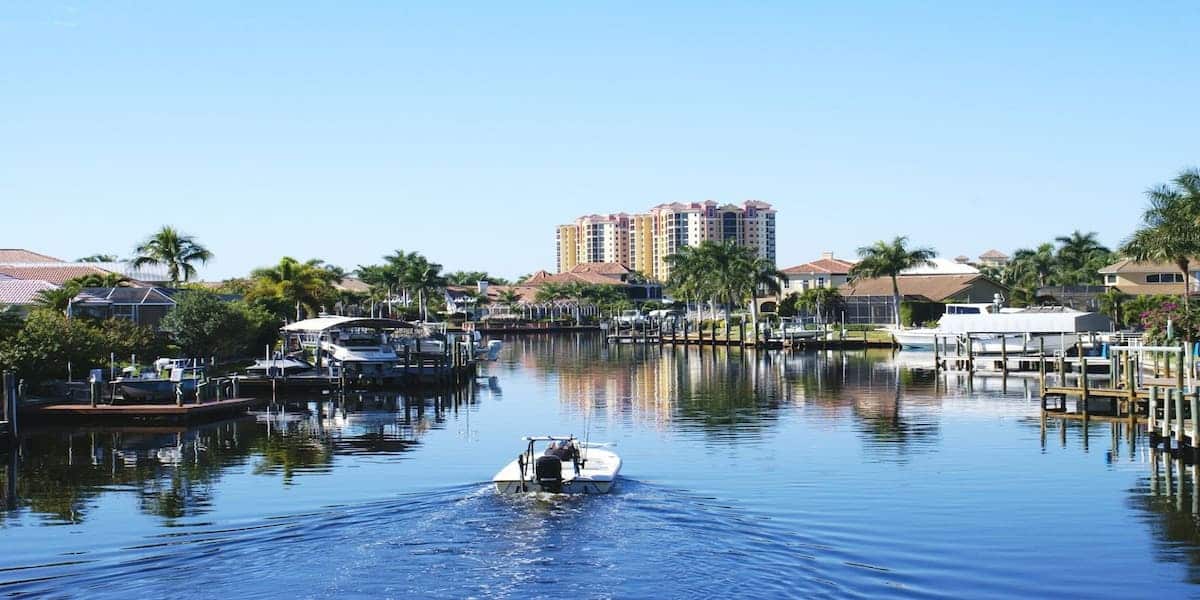
Boating accidents can be scary and stressful. If you’re ever involved in one, it’s important to know how to file a boating accident report. Doing this not only follows the law but also helps make boating safer for everyone. In this guide, we’ll explain when and how to file a report so you can stay on the right side of the law and keep everyone safe.
Why Is It Important to File a Boating Accident Report?
If you’ve been in a boating accident, you need to act fast. A boating accident report is an official document that tells authorities what happened. Filing this report helps protect your legal rights, shows you’re following the law, and can even help prevent future accidents.
In Florida, where boating is popular, it’s especially important to report accidents quickly. Law enforcement uses these reports to investigate incidents, enforce boating rules, and keep the waterways safe. Not filing a report when required could lead to fines or legal trouble, especially if someone was hurt or property was damaged.

When Do You Need to File a Boating Accident Report?
Boating can be a lot of fun, but sometimes accidents happen. Not every small accident on the water needs to be officially reported, but there are specific situations where filing a boating accident report is required by law. Understanding these rules is important because it can help you avoid fines or legal trouble.
Here are the main situations when you must file a boating accident report:
- When Someone Is Hurt and Needs Medical Treatment Beyond Basic First Aid
- If someone involved in the accident is injured to the point where they need professional medical help—like going to the hospital or getting stitches—it’s mandatory to file a report.
- Even if the injury seems minor at first but later requires more treatment, you should still report it.
- If There’s a Death Involved
- If someone dies during the accident or passes away as a result of their injuries afterward, you are required to file a report immediately.
- This is one of the most serious types of accidents, and authorities need to be informed right away to investigate and document what happened.
- When Property Damage Exceeds $2,000
- If the accident results in damage to boats or other property totaling more than $2,000, you need to report it.
- Property damage includes things like broken parts of the boat, damage to docks, or even damage to other boats.
- If Someone Is Missing
- If someone goes missing during a boating accident and you believe they may be injured, unconscious, or worse, you must file a report.
- This is crucial because it helps authorities begin search and rescue operations as quickly as possible.
Why is it important to report these incidents?
Filing a report not only keeps you in compliance with the law but also protects you in case of legal disputes. If another party claims you were responsible for injuries or damage, having a detailed report can be essential in defending yourself.
What happens if you don’t file a report?
Failing to file a required report can lead to fines, legal penalties, or even criminal charges, especially if someone was injured or died. It’s always better to be safe than sorry and report the incident if you’re unsure.
How Quickly Must You File a Boating Accident Report?
Another common question is, “how quickly must you file a boating accident report?” The timeline depends on the severity of the accident:
- Within 48 Hours
- You must file a report within 48 hours if:
- Someone is injured and needs medical treatment beyond first aid.
- A person involved in the accident is missing.
- There’s a fatality related to the accident.
- You must file a report within 48 hours if:
- Filing quickly in these cases is crucial because authorities may need to investigate the scene or gather additional information while it’s still fresh. If you wait too long, important details could be lost, making it harder to prove what happened.
- Within 10 Days
- For accidents involving only property damage (more than $2,000) or minor injuries, you have up to 10 days to file the report.
- Even if no one was seriously hurt, it’s still important to file on time. This helps authorities keep track of accidents and prevents potential legal problems down the road.
Why is timing important?
Filing the report promptly helps you avoid fines and shows you are responsible and compliant with the law. Additionally, it helps protect your legal rights if someone tries to claim you were at fault. If you miss the deadlines, you could face legal penalties, and it may also affect your insurance claims.
How to Make Sure You File on Time
It can be stressful dealing with a boating accident, but it’s important to stay calm and gather all the information you need to file your report on time. Here are some tips to help:
- Gather Details Right Away: As soon as everyone is safe, start collecting information. This includes:
- Names, addresses, and contact details of everyone involved.
- Registration numbers of the boats involved.
- Photos of the damage, injuries, and scene of the accident.
- Statements from witnesses, if there are any.
- Contact Authorities Immediately: If someone is seriously injured, missing, or if there was a death, call 911 or the local Coast Guard right away. In Florida, the Florida Fish and Wildlife Conservation Commission (FWC) often handles boating accidents.
- Complete the Report: You can usually get the official boating accident report form online or from local authorities. Make sure to fill it out as accurately and thoroughly as possible.
- Submit the Report: Once completed, submit it to the right agency (like the FWC or local police). Keep a copy for your records in case you need it later for insurance or legal reasons.
Frequently Asked Questions
Q: What happens if I’m not sure whether my accident requires a report?
If you’re unsure, it’s better to file a report just to be safe. Filing a report shows you are acting responsibly and can protect you if any legal issues come up later.
Q: Can I file a boating accident report online?
Yes, in many places, including Florida, you can file a report online through the FWC’s website. This can make the process faster and easier.
Q: What if I miss the deadline to file a report?
If you miss the deadline, you could face fines or other penalties. In some cases, it might also affect your insurance coverage or lead to legal problems, especially if there were injuries or significant damage.
Q: Who is responsible for filing the report?
Usually, the operator of the boat involved in the accident is responsible for filing the report. If the operator is unable to do so, another person involved in the accident may need to file it.

How to File a Boating Accident Report: A Step-by-Step Guide
If you’re involved in a boating accident, filing a report might seem overwhelming, especially if you’re already dealing with stress and worry. However, it’s crucial to follow the steps correctly to protect yourself legally and ensure safety compliance. Below, we’ve broken down the process step-by-step so you can understand what needs to be done.
Step 1: Gather Information Right Away
Before doing anything else, make sure everyone involved is safe. Once everyone is secure, you’ll need to start collecting details about the accident. The more information you have, the easier it will be to file a thorough and accurate boating accident report.
Key Information to Collect:
- Names and Contact Information: Get the full names, addresses, and phone numbers of everyone involved, including other boat operators, passengers, and witnesses.
- Boat Registration Numbers: Write down the registration numbers of all boats involved in the accident.
- Accident Details: Include the date, time, and exact location of the accident. Take note of weather conditions, water conditions (like waves and currents), and visibility at the time.
- Descriptions of What Happened: Write a summary of the events leading up to the accident. What was each boat doing? Were there any sudden changes in speed or direction?
- Photos and Videos: If it’s safe, take pictures of any damage, injuries, and the surrounding area. Videos can also be helpful for capturing a better view of the scene.
FAQs
Q: What if someone refuses to give their contact information?
A: If someone is hesitant, document their boat registration number and try to get photos of the scene. You can report this to authorities when filing.
Step 2: Notify Authorities Immediately
After gathering initial information, it’s time to notify the authorities, especially if the accident is serious. Florida law requires you to report accidents involving injuries, fatalities, or significant damage to local law enforcement or the Florida Fish and Wildlife Conservation Commission (FWC).
Who to Call:
- Police or Coast Guard: For serious injuries, missing persons, or fatalities, call 911 right away.
- FWC: For non-emergency situations, you can contact the Florida Fish and Wildlife Conservation Commission. They have authority over boating incidents in Florida.
FAQs
Q: What happens if I don’t call the authorities?
A: If the accident involves injuries, a missing person, or major property damage, failing to notify authorities can result in fines or legal trouble. It’s better to report and be safe.
Step 3: Complete the Boating Accident Report Form
Once you’ve contacted the authorities, the next step is to fill out the official boating accident report form. This form is required by Florida law to document the details of the accident.
How to Fill Out the Form:
- Get the Form: You can find the report form on the FWC’s website or obtain it from the police at the scene.
- Be Thorough: Make sure to fill out every section of the form. Include all the information you gathered in Step 1, like names, registration numbers, and a description of the accident.
- Stay Accurate: Double-check your facts before submitting. Errors or missing information could delay any legal or insurance claims.
FAQs
Q: Can I fill out the form online?
A: Yes, in many cases, you can fill out and submit the report form online through the FWC’s website.
Step 4: Submit the Report
After completing the form, it’s time to submit it to the correct agency. In Florida, you’ll usually send the report to the FWC or the local police, depending on where the accident took place.
Submission Tips:
- Submit Within the Deadline: For accidents involving injuries or fatalities, submit the report within 48 hours. For accidents with only property damage, you have 10 days.
- Keep a Copy: Always keep a copy of the report for your records. This could be crucial if insurance claims or legal issues arise later.
FAQs
Q: What if I miss the deadline?
A: Missing the deadline can result in fines or even criminal charges in serious cases. It’s best to file the report as soon as possible to avoid any issues.
Mistakes to Avoid When Filing a Boating Accident Report
To protect yourself legally and ensure compliance, be mindful of these common mistakes:
- Waiting Too Long: Filing late can lead to penalties. Make it a priority to report as soon as you can.
- Providing Incomplete Information: Missing details can delay insurance claims or even lead to legal issues if a lawsuit is filed.
- Not Contacting Authorities Right Away: In serious cases involving injuries or deaths, failure to contact authorities could lead to criminal charges.
FAQs
Q: What if I don’t have all the details right away?
A: File the report with as much information as you have. You can always provide additional details later if needed.
What Happens If You Don’t File a Report?
Not filing a boating accident report on time can have serious consequences:
- Fines: Florida law may impose fines for failing to report an accident.
- Legal Trouble: If someone was hurt or killed, not filing a report could result in criminal charges.
- Weakened Defense: If someone sues you over the accident, not having a report on file could make it harder to prove your side of the story.
FAQs:
Q: Can I still file a report if I missed the deadline?
A: Yes, it’s better to file late than not at all, but you may face penalties for missing the deadline.
When Should You Get Legal Help?
If the accident involved injuries, deaths, or significant property damage, it’s smart to consult with an experienced attorney. A lawyer can help you understand your rights and make sure you’ve covered all your bases.
Why Choose William W. Price P.A.?
- Over 25 Years of Experience: The firm has been helping clients navigate complex legal situations since 1995.
- Personalized Service: You get direct access to attorneys, not paralegals, ensuring your case is handled with care.
- Top-Rated: The firm has earned the prestigious “AV” rating, recognizing their high level of legal experience.
Frequently Asked Questions
1. Who needs to file a boating accident report?
Usually, the person operating the boat at the time of the accident is responsible for filing the report. If they can’t do it, someone else involved can file it.
2. Can I file a boating accident report online?
Yes, in Florida, you can often file the report online through the FWC’s website.
3. What if I’m not sure whether I need to file a report?
If you’re unsure, it’s better to file one just to be safe. You can also consult a lawyer to understand your legal responsibilities.
Stay Safe and Protect Your Rights
Boating accidents can be overwhelming, but knowing how to file a boating accident report is key to protecting yourself and staying within the law. If you’ve been in an accident and need advice, reach out to William W. Price P.A. for help. Our experienced team is here to guide you through the process and make sure you’re taken care of.
Contact us today to learn more about how we can help you with your case!

